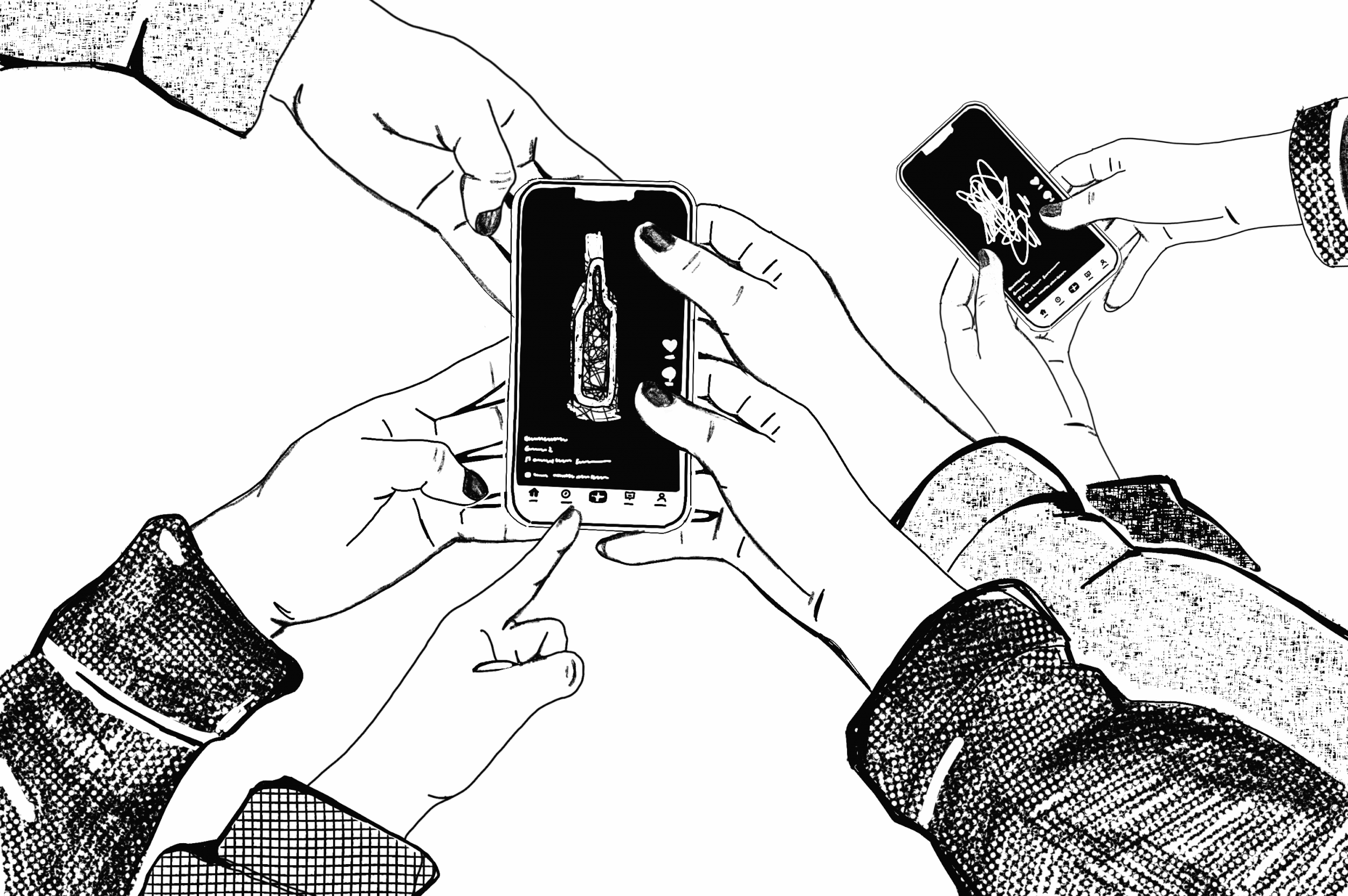The first post from 1yrtowellness stopped me cold. It came, as all things on TikTok do, unbidden in the midst of a digital somnambulation. A moment before, I’d been watching a man tape drywall joints. The next, I was in the bedroom of Jalin Moore, an Arizona alcoholic, his mattress half undressed, a confetti of dumbbells and Bud Lights strewn across a floor of laundry.
“Alcohol has literally destroyed my life,” Moore wrote as his camera roved to the empty Absolut bottle on the bathroom sink, the patio heaped with debris from the night before. “But that changes today.”
As of my writing, this video has 2.8 million views and 110,300 likes. 13,400 other TikTokers commented, wishing their new protagonist well and telling their own stories of how they struggled. This is SoberTok, the app-based subculture of moderation-minded users, sobriety influencers, and despondent boozehounds all foraging together for the inspiration to get better.
Over the past 10 months, my algorithm has trained itself on this community. Through it, I’ve met Dr. Melissa Kelly, a sobriety life coach who posts about how quitting drinking changed her career; 22andsober, a college girl who started self-medicating with alcohol at 16 and is working through her trauma online; and Scott Freda, a recovering hardcore alcoholic who preaches accountability and the harsh toll drinking takes on your body.
TikTok has been a constant source of story ideas since I joined the platform last year. It’s where I discovered the name for this column, read aloud to me by an AI voice from a Reddit screenshot. I’m fascinated with the way that it creates intimacy on a level well beyond any other social media. The parasocial voyeurism is frankly unsettling.
I’ve watched with heart-rending anticipation as 1yrtowellness has taken to farming peppers or making eggs benedict to distract from the cravings. How he reposted fitness videos with the words “Gonna be me soon” typed over the top. I met themanwiththehat, a gentle British grandfather named Stephen who’s tried everything from meditation to drugs to get sober, but it wasn’t until he joined TikTok that it finally held. Now, 310,300 people follow along on his journey, and he has over 600 days sober.
But TikTok also fails in the ways that other social media platforms do. SoberTok is only a “community” insofar as any group of people on Twitter or Instagram can be considered such. It’s mostly one-way communication, and it tolerates nuance just as poorly as any other scrollable content feed. People have leapt into the comments to call people like 1yrtowellness and themanwiththehat weak-minded or failures. A popular account called Sober Tryouts shut down in October after its owner, a wide-eyed man with a history of substance abuse, was chastised for trying to resume drinking in moderation.
I’ve watched 1yeartowellness relapse, almost in real time, at least four times—the first one just five days after he opened the account. He’s disappeared for months at a time, and his stats have dwindled as he’s floundered. His latest only has 476 views, and his videos are often lost in the melange of car detailing ASMR, fantasy football advice, and Taylor Tomlinson standup that makes up my For You page.
And yet it feels important to have small moments like these thrust into my day. Whether it’s Freda showing off the ways alcoholics hide Everclear from their wives or a tutorial from themanwiththehat on how to roast lamb, having a intermittent, passive current of sobriety in my media diet has transformed my thinking—even if it’s only for a couple seconds between thumb strokes.

